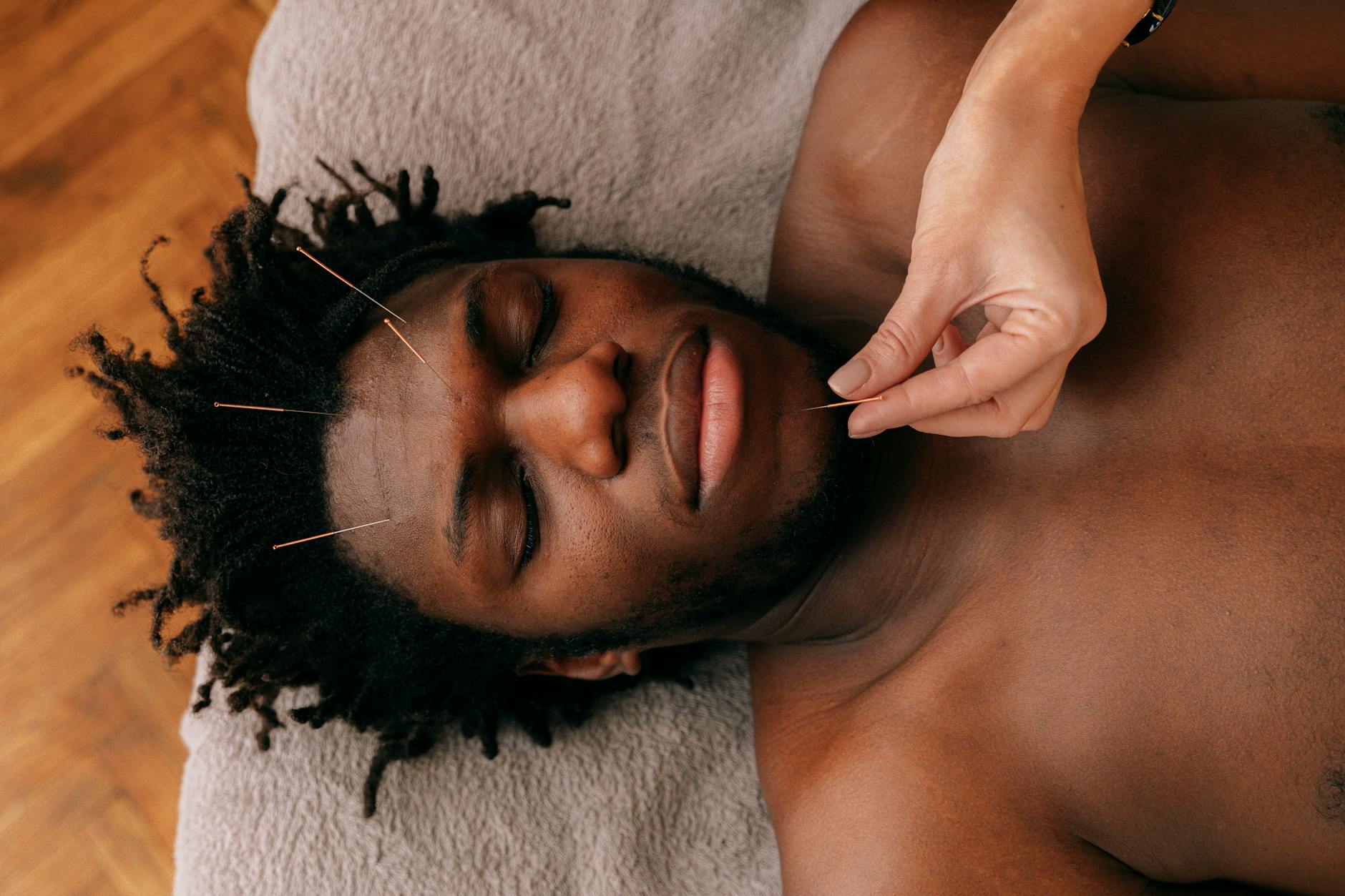Five Ways Acupuncture Fits Your Busy Downtown Lifestyle
If you’ve walked through a downtown neighborhood lately, you’ve probably seen more signs for acupuncture clinics popping up on every other block. People in cities want quick ways to recharge, feel better, and keep up with their packed schedules, and acupuncture is answering that need. Its rise in popularity shows that busy urbanites are finding real benefits, whether it’s pain relief, stress management, or better energy throughout the day.
Living and working in a vibrant downtown means long hours, tight deadlines, and hardly a moment to yourself. Fitting in self-care can feel impossible. That’s why acupuncture is catching on—it helps people stay balanced, sharp, and refreshed without slowing them down. This guide will spotlight five smart ways acupuncture can work for city life, making wellness part of your regular routine instead of just another to-do.
Acupuncture as a Solution for Urban Stress and Wellness
City living demands quick thinking, steady nerves, and resilience from its professionals. In the middle of downtown deadlines, packed subways, and fast lunches, feeling grounded and staying healthy become daily goals, not just nice-to-haves. Acupuncture meets these needs by addressing the real-life stress and health issues that come with a packed urban schedule. Here’s how acupuncture fits right into the toolkit of anyone trying to stay sharp and well in the downtown grind.
Reducing Workplace Stress and Anxiety
 Photo by Antoni Shkraba Studio
Photo by Antoni Shkraba Studio
Urban jobs can turn stress into a full-time companion. Long working hours, constant email notifications, and packed meeting calendars quickly raise anxiety levels. Acupuncture gives professionals a reset button.
- Physiological benefits: Research shows that acupuncture can regulate stress hormones like cortisol and promote the release of endorphins and serotonin. These natural chemicals help the body relax and foster a sense of calm, even after an overwhelming day at work.
- Calms the nervous system: Targeting specific points (such as Yintang and Shenmen), acupuncture slows the body’s “fight or flight” response and supports emotional balance. Studies at urban universities and clinics confirm that those who receive regular acupuncture report feeling less overwhelmed and more balanced.
- Real results: Meta-reviews suggest the effects can be comparable to some conventional options for short-term anxiety relief, with many downtown professionals experiencing fewer racing thoughts and greater focus after their sessions.
Acupuncture isn’t just an hour of relaxation. It offers an ongoing strategy for handling the tough mental demands of city work.
Supporting Physical Health and Pain Relief
Sitting at a desk, staring at screens, or commuting for hours can leave muscles tight and joints aching. Acupuncture is well-known for supporting pain relief, making it a practical choice for office workers.
- Back and neck pain: Acupuncture targets common areas of tension. Studies note that treatments can deliver short-term relief for low back pain, neck tension, and even repetitive strain injuries often found in hands and arms.
- Headache reduction: Regular sessions may decrease the frequency and intensity of tension-type headaches, which are a common issue among those working under fluorescent lights all day.
- Support for productivity: Office workers receiving acupuncture report feeling less physical discomfort, which can translate to greater focus and better performance during long workdays.
While traditional painkillers offer a quick fix, acupuncture works as a complementary approach, gently easing everyday tension and supporting long-term wellness.
Enhancing Sleep and Energy Levels
Chronic stress and physical strain hit sleep quality hard. Many busy professionals struggle to fall or stay asleep, leading to groggy mornings and a reliance on caffeine. Acupuncture can help reset these cycles.
- Improved sleep quality: Acupuncture is linked with better sleep in multiple studies. By easing anxiety and physical discomfort, sessions often help users fall asleep faster and experience deeper, more restorative rest.
- Daytime energy boost: When sleep improves, so does energy. Professionals say acupuncture helps them wake up feeling refreshed and ready, making it easier to handle long meetings, deadlines, and social events.
- Natural rhythm reset: Instead of just masking fatigue, acupuncture supports the body’s natural processes, so energy and focus return without the need for constant stimulation or supplements.
Better sleep and energy aren’t luxuries for downtown professionals—they’re essentials. Acupuncture helps make them part of everyday life, even with a schedule that rarely slows down.
Seamless Integration Into Busy Schedules
Finding time for wellness can feel impossible in downtown living. Between commuting, back-to-back meetings, and after-hours obligations, most people have little control over their day. The new wave of acupuncture clinics gets this. They focus on convenience so you can actually fit self-care into your week—without the hassle. Here’s how the modern acupuncture experience meets the lifestyle of downtown professionals.
Flexible Appointment Times and Drop-in Clinics
Long gone are the days when acupuncture appointments meant rearranging your whole day. Clinics in city centers now offer:
- Late evening hours: Some locations in major metros stay open as late as 9 PM. This means you can unwind after work or even after dinner, not just during traditional office hours.
- Lunchtime sessions: Many clinics reserve midday slots so you can slip in for a quick treatment, then get back to the office refreshed.
- Weekend availability: Saturday and Sunday appointments help those who refuse to let self-care compete with work deadlines.
- Drop-in and walk-in clinics: Community clinics often provide “walk-in” or low-cost group acupuncture with little or no wait. You don’t have to plan weeks out—just pop in when time allows, perfect for unpredictable schedules.
These options give busy people real flexibility. Whether you work early mornings or late nights, or if your job has you running between meetings, acupuncture has become just as accessible as grabbing a cup of coffee.
Digital Booking and Automated Reminders
 Photo by Kaboompics.com
Photo by Kaboompics.com
Clinic visits can create more stress than relief if the booking process is clunky. That’s why the best downtown clinics make digital tools part of their standard care. Most locations now offer:
- Online scheduling: Book appointments 24/7 on your phone, no phone tag required. View up-to-the-minute availability and pick a time that works for you.
- Pre-visit digital forms: Fill out health questionnaires and intake forms before your appointment, cutting down on wait times and paperwork.
- Automated text or email reminders: Never miss an appointment thanks to reminders sent straight to your inbox or phone. Need to reschedule? Click a link and pick a new time instantly.
These tech updates mean you can book while on the subway, at your desk, or even during a midnight bout of insomnia. You spend less time arranging care and more time actually getting it.
Modern acupuncture clinics are designed to work around your schedule, not the other way around. Whether you plan days ahead or fit things in last minute, the process is streamlined and stress-free.
Affordable and Accessible Care for Urbanites
Acupuncture is not just for those with deep pockets or lots of free time. In fact, modern urban clinics are leading the charge in making care both affordable and accessible to anyone who wants it. Downtown professionals are finding more ways to invest in wellness without breaking the bank, thanks to innovative models that trim costs and open doors. Here’s how acupuncture is quietly becoming a realistic option for all types of city dwellers.
Community Acupuncture and Sliding Scale Pricing
 Photo by Andreas Maier
Photo by Andreas Maier
Community acupuncture flips the script on traditional “private room” treatments by bringing people together in open, calming group spaces. You settle into a comfy chair, sometimes next to neighbors or co-workers, and get individual care in a shared setting.
This approach cuts overhead and lets clinics offer a much lower price—think $40–$55 per session, sometimes even less. Many urban clinics use a sliding scale, so you pay what you can reasonably afford.
Benefits include:
- Lower costs: Shared space equals shared savings, helping you try acupuncture regularly without stretching your wallet.
- Fewer barriers: There’s no pressure if you can’t pay the full suggested amount—everyone has access to care.
- Sense of community: Group treatments remind you that wellness isn’t a solo act. You may catch up with others, chat quietly or just relax knowing you’re not the only one investing in self-care.
Treatments in community clinics often focus on hands, feet, head or neck—no need to undress, and the process stays quick and comfortable. Even in the city’s busiest neighborhoods, these clinics blend privacy with the good kind of “neighborly energy,” so you leave feeling seen and cared for.
Insurance Reimbursement and Flexible Payment Options
Insurance coverage for acupuncture isn’t a sure thing, but more city insurance plans and workplaces now support it for pain relief and wellness. If you have an HSA, FSA or wellness account through work, you can often use pre-tax money to help pay for treatment. Some large insurers cover 20–30 sessions per year for issues like chronic back pain, migraines or even anxiety.
Urban clinics help by:
- Verifying benefits: They’ll run your insurance and show you what’s covered, saving you time and money surprises.
- Filing claims: Many front desks will submit for you, so you get your reimbursement faster.
- Flexible payment plans: Can’t pay all at once? Many clinics offer interest-free installment plans or “pay-as-you-go” packages.
- Employee programs: Check if your workplace has a wellness stipend or discounts on preventive care that covers acupuncture visits.
Key tips:
- Always ask upfront about session caps or restrictions.
- If you can’t get reimbursed, ask about monthly payment splits or “punch card” discounts.
- Save all your receipts—most HSA/FSA accounts require proof of medical spending.
Affordable acupuncture is no longer a secret club. With smart pricing, payment plans, and insurance know-how, care fits easily within more budgets and lifestyles, so anyone who wants downtown wellness can get it.
Integrative Health and Preventative Wellness
Acupuncture isn’t just about needles or ancient rituals—it’s a growing pillar in downtown wellness routines. People want more from healthcare than quick fixes; they want long-term energy, resilience, and peace of mind, right in the heart of city life. That’s where integrative health comes in, pulling together acupuncture, traditional medicine, and wellness services to keep you on your feet and ahead of stress. Here’s how acupuncture fits into the bigger picture of staying well, before chronic issues take hold.
Complementing Modern Medicine: Acupuncture in Primary Care and Specialist Clinics
 Photo by RDNE Stock project
Photo by RDNE Stock project
The best city healthcare options work together, not apart. More doctors, nurses, and specialists now partner with licensed acupuncturists, blending ancient practices with proven clinical care for a complete approach to health.
You’ll find acupuncture:
- Alongside physical therapy: Some clinics combine acupuncture with traditional rehab for sports injuries, workplace strain, or chronic back pain.
- In pain management programs: Major health centers, like Mayo Clinic and Weill Cornell, use acupuncture together with standard treatments for migraines, arthritis, or recovery after surgery.
- In primary care clinics: Patients might be referred for acupuncture to help with anxiety, tension headaches, or recovery after illness, cutting down on overuse of medications.
- As part of cancer support: Big hospital systems include acupuncture to control side effects like nausea, sleep problems, or nerve pain during cancer treatment.
Teams often meet to tailor treatment plans that fit your workday and health goals. Whether you’re mixing acupuncture with medical massage, nutrition counseling, or check-ins with your doctor, the aim is whole-body wellness—built for real life in the city.
Key takeaway: Acupuncture works with, not against, the care you already get. Team-based clinics help you stay healthy, not just get well after symptoms start.
Preventative Health and Chronic Condition Support
Downtown living brings hustle, but it also raises the risk for burnout, chronic pain, and health setbacks. Here’s how acupuncture can act as a buffer before issues get out of hand:
- Reduces disease risk: Regular acupuncture may help lower blood pressure, balance stress hormones, and improve circulation. Small changes add up, lowering the risk for bigger health problems down the line.
- Manages chronic pain: It’s recognized by leading clinics for helping with back and neck pain, arthritis, and migraines—without relying on daily pain pills.
- Eases daily urban stress: Acupuncture’s calming effect can counteract the steady stream of traffic noise, late nights, or screen-time. It’s like hitting the reset button for your body’s stress systems.
- Speeds recovery: Whether it’s aches from workouts, tension after long meetings, or recovering from an illness, sessions can support the healing process, so downtime doesn’t derail your week.
A personalized wellness plan might include:
- Weekly or biweekly acupuncture
- Gentle movement like yoga or tai chi
- Mindfulness practices for focus and calm
- Check-ins with doctors and nutrition experts
By folding acupuncture into your regular health strategy, you build resilience before crisis hits. It’s not only about fixing problems, but about feeling better, keeping energy up, and slowing down wear and tear from urban life. Integrative health turns “wellness” into something practical, not just another item on your to-do list.
Making Acupuncture Work for You: Tips for Downtown Professionals
Acupuncture isn’t just something you try once and hope for the best. With the right approach, it becomes a powerful partner in your self-care routine, even if you’re racing between meetings all week. Here’s how busy downtown professionals can make the most out of every session—and pick a clinic that fits their needs perfectly.
Maximizing Session Benefits
To get the most out of acupuncture, treat your appointments as building blocks for better health, not just crisis fixes. Here’s what you need to know:
What to Expect During Appointments
- The first session includes a health chat, targeted questions, and setting clear goals. You’ll usually relax in a quiet space while tiny needles are gently placed at selected points.
- Some people feel an instant sense of calm or warmth. Others need a few visits before real change kicks in.
- Appointments last about 30–60 minutes, so you can easily work one in on a lunch break or after office hours.
Ideal Frequency for Busy Schedules
- Most people start with weekly sessions. Acute symptoms sometimes call for two per week, but that’s rare for hectic work lives.
- Many professionals shift to every other week or monthly “maintenance” visits once their body starts to respond.
- Sticking to a consistent schedule keeps results steady. Think of it like regular workouts—you’ll get more benefit if you keep up the routine.
Combining Acupuncture with Lifestyle Tweaks
To stretch every session further, some simple habits go a long way:
- Stay hydrated: Drinking water after your appointment helps flush out toxins and keeps energy flowing.
- Eat light, whole foods: Heavy or greasy meals can blunt the healing effect. Opt for balanced meals, especially on treatment days.
- Ease into movement: Gentle walks, stretches, or yoga help maintain your body’s energy between visits.
- Prioritize restful sleep: Try winding down before bed instead of scrolling or checking emails, so your body can fully recover.
- Limit caffeine and alcohol: These can stress your system or reduce the benefits of acupuncture, especially right after a session.
Pro tip: Don’t overschedule right after treatment. Even 10–15 minutes of quiet after your appointment helps lock in that post-acupuncture calm.
Finding the Right Clinic and Practitioner
Downtown areas give you a lot of choices, but a little research pays off. Here’s how to spot the best fit for your needs:
Check Credentials and Experience
- Make sure your acupuncturist is fully licensed. In the U.S., look for certification from bodies like the NCCAOM.
- Ask about their training, experience, and whether they’ve worked with professionals with similar issues—like back pain, anxiety, or sleep trouble.
- Some specialize in areas like sports injury, women’s health, or stress, so ask about their focus.
Evaluate Clinic Amenities and Atmosphere
- Look for clean, comfortable treatment rooms, privacy, and amenities like tea or water, soft lighting, and soothing music.
- Check hygiene standards—needles should always be single-use and sterile, and spaces should feel fresh.
- Many downtown clinics now offer both private and community (group) settings. If you like calm and quiet, private rooms may suit you best. If you want affordability and community, group clinics work great.
Prioritize Accessibility and Comfort
- Choose a clinic that’s near your office, on your commute, or close to public transit. Convenience means you’re more likely to stick with appointments.
- Consider clinics with online booking, automated reminders, and flexible hours. These small details reduce stress and help you commit.
- Friendly, clear communication is key. The best acupuncturist listens, answers your questions, and explains each step so you feel at ease.
Quick checklist to make your decision easier:
- Licensed and experienced practitioner
- Clean, calm, and welcoming space
- Convenient location and hours
- Clear and supportive communication
- Flexible payment and scheduling options
Finding the right practitioner makes all the difference. When you feel supported and understood, it’s much simpler to keep acupuncture as a steady part of your downtown routine.
Conclusion
Acupuncture offers real solutions for city dwellers who want to stay healthy without losing time or adding stress. It brings relief for both mind and body, fits different budgets, and adapts to even the busiest downtown schedules. Modern clinics make appointments easy, care accessible, and wellness goals more attainable.
Choosing acupuncture means you’re investing in a health routine that keeps you strong, clear-headed, and ready for anything your work or city life throws at you. With flexible options and proven results, it’s no wonder more professionals are making acupuncture part of their weekly routine.
Try adding acupuncture to your self-care plan and see how it helps you recharge, focus, and thrive in the heart of the city. Have a favorite clinic or story to share? Drop a comment below—your input helps others on their wellness journey. Thanks for reading and making your own well-being a priority.








